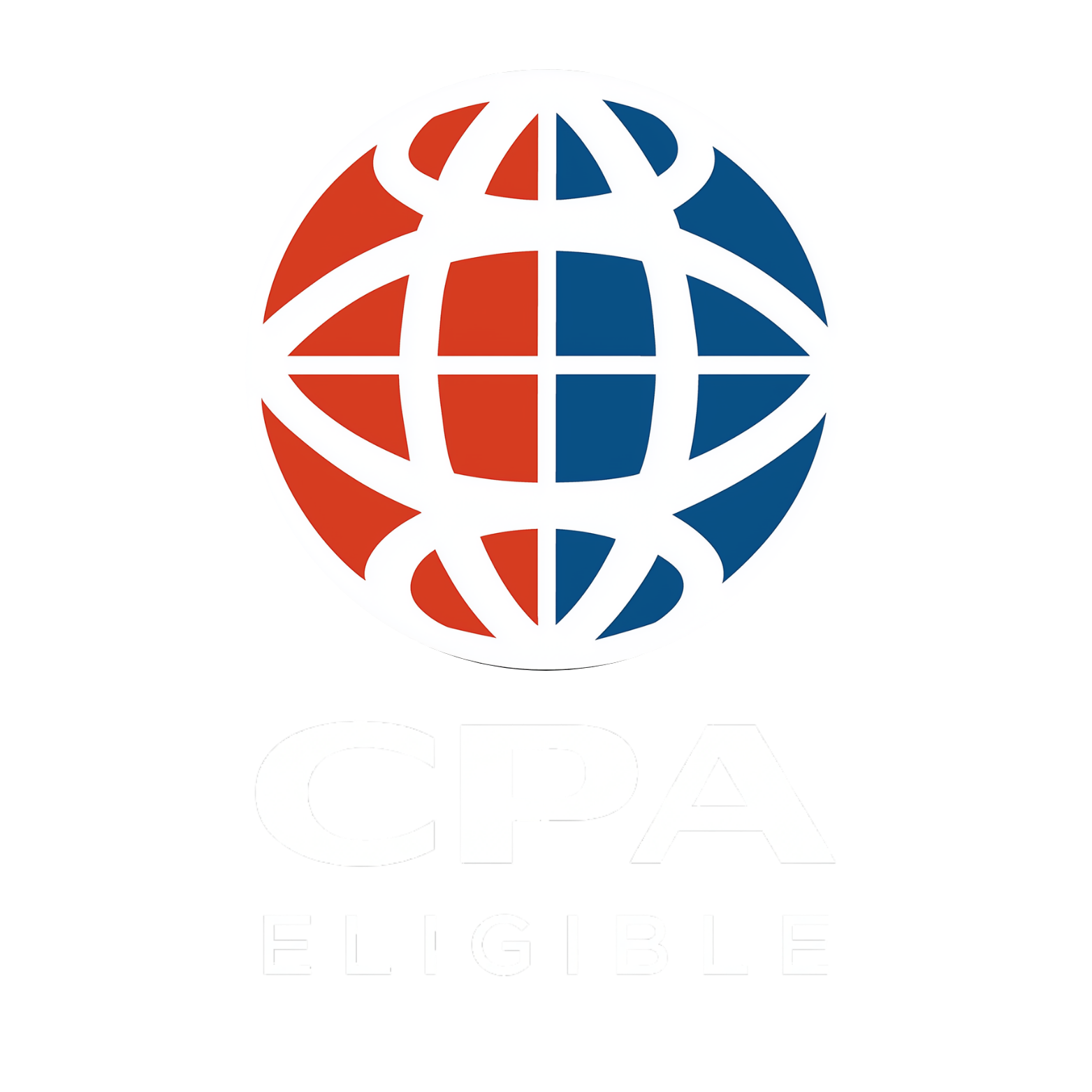CPA Eligibility by State: What You Need to Know
The U.S. CPA license is recognized worldwide, but what trips up many candidates is that eligibility isn't national — it's set state by state. Every Board of Accountancy has its own rules. If you're trying to figure out where you qualify, you need to understand the common standards and the differences.
This guide breaks it down so you know what to expect before you go deeper.
The 150 Credit Hour Rule
- •Most states require 150 semester credit hours of education.
- •Usually this means a bachelor's degree plus additional coursework.
- •About 30 of those hours must be in accounting subjects.
Suggested link: to your blog on "2025 CPA Exam Requirements"
Typical Coursework Requirements
- •Accounting courses: financial, managerial, audit, taxation.
- •Business courses: finance, economics, business law.
- •General electives: fill the remainder toward 150 hours.
Suggested link: to your blog on "What Counts Toward the 150 Credit Hours?"
Experience Requirements
- •Some states require 1–2 years of supervised experience under a licensed CPA.
- •Others allow broader accounting/finance experience.
- •You usually don't need experience to sit the exam — but you'll need it for the license.
International Candidates
- •Most states accept foreign degrees, but only after a foreign credential evaluation.
- •Evaluators determine whether your coursework is equivalent to U.S. education.
Suggested link: to your blog "CPA Eligibility for International Students: Common Pathways"
Why States Differ
- •Some require U.S. residency or Social Security numbers.
- •Others are more flexible and open to international candidates.
- •A few have unique course rules (ethics, communications, upper-level accounting).
Upcoming Changes in 2026
The CPA licensure process is evolving. By 2026, state boards are expected to move toward greater consistency in eligibility requirements, driven by NASBA and AICPA's push to modernize the profession.
- •States are aligning more closely on the 150-hour rule.
- •Expect stricter enforcement of upper-level accounting and ethics courses.
- •Greater emphasis will be placed on technology and data-driven coursework to match the CPA Evolution exam model launched in 2024–2025.
- •Some flexibility that international candidates currently rely on may narrow, making early planning even more critical.
Suggested link: to your blog "CPA Exam 2025: Updated Requirements and Global Impact"
Key Takeaway
Eligibility is not one-size-fits-all — and it's evolving. At a high level, you can expect:
- •150 total hours
- •Accounting + business coursework
- •Degree evaluation if you studied abroad
- •Some work experience requirement later
- •Newer emphasis on ethics and technology courses as 2026 approaches
Ready to Find Your Best State Path?
If you're unsure where you qualify, that's normal. Every candidate's background is different, and the 2026 changes only add complexity. That's where a professional eligibility review comes in — we can help you identify the best state path for your education and goals.
